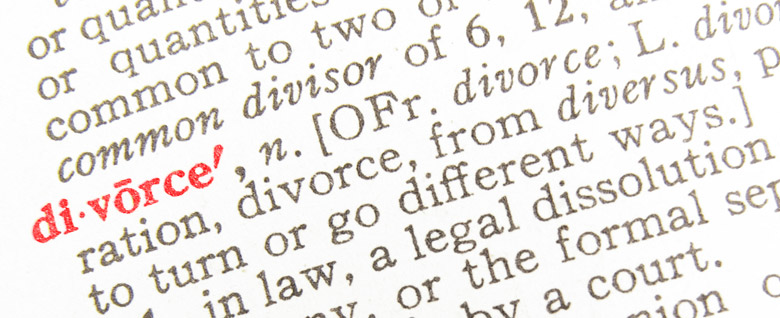For over 20 years, legal professionals have argued for ‘no fault’ divorce to be introduced in England and Wales. It is argued that the current law increases hostility and is confusing.
Currently if you want a divorce in England and Wales you have to prove that your marriage has broken down “irretrievably” and you have to choose a reason for the breakdown. There are five options:
- your partner deserted you
- your partner committed adultery (although this doesn't apply to same sex marriages)
- your partner’s behaviour was unreasonable
- you have been separated for two years and both agree to a divorce
- you have been separated for five years.
If you are amicable and there is no-one else involved and you don’t want to wait two years therefore you would have to rely on the fact of your partner’s “unreasonable behaviour”. This covers a broad range of behaviour from domestic violence to being unsociable. It is a subjective test, so it is what you find unreasonable, but it has to be sufficient to satisfy the court. It is advisable to give four or five examples of unreasonable behaviour in the divorce petition (application).
The respondent, somewhat understandably, may well be annoyed or upset by these allegations about their behaviour which can harm a previously amicable split.
The respondent may choose not to sign the papers or even defend the divorce which can lead to a costly and time consuming court dispute. It may also impact on the likelihood of an amicable agreement about financial matters or arrangements for any children.
Recent research by the Nuffield Foundation has found that many people who defend a divorce petition don’t actually want to stay married, they just disagree with the allegations made by their ex-partner, or don’t want to be blamed for the breakdown of the marriage, or want the court to have their side of the story.
Currently, to agree to a divorce on the basis of unreasonable behaviour, there still has to be some admission of that behaviour.
Baroness Hale (Deputy President of the Supreme Court) first called for ‘no fault divorce’ in 1996 when she was a member of the Law Commission. The Commission proposed that a couple would state their marriage had broken down and be granted a divorce after a year if they did not change their minds.
Baroness Hale continues to support ‘no fault divorce’ and in a recent speech at the annual Resolution conference, she stated “the contents of the [divorce] petition can trigger or exacerbate family conflict entirely unnecessarily… There is no evidence at all that having to give a reason for the breakdown makes people think twice”.
Sir James Munby (President of the Family Division) also spoke in favour of reform last week at the Westminster Legal Policy Keynote Forum Seminar (at which Stephensons’ Mike Devlin was a contributing speaker), stating that the current divorce system is “a hypocrisy”.
The only recent case where a divorce has been successfully defended is Owens v Owens. The court refused to grant Mrs Owens a divorce stating her husband’s behaviour wasn't objectively bad enough to make it unreasonable for her to live with him. Mrs Owens has appealed to the Supreme Court and the case will be heard on the 17th of this month.
However, as Baroness Hale said, ultimately the judges can only interpret the law, it is up to Parliament to reform the law. If Mrs Owens’ appeal is unsuccessful she will have to wait five years (from the date she separated from her husband) to apply for a divorce.
The above is only a brief guide to the divorce process and anyone considering a divorce should seek independent legal advice from one of our family law specialists on 01616 966 229.



Comments